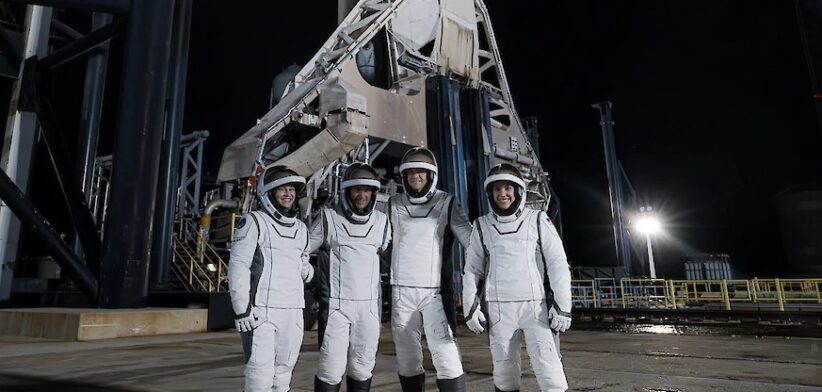Australians working in Antarctica are helping prepare astronauts for future missions to Mars.
Australian Antarctic Division Chief Medical Officer Dr Jeff Ayton said Antarctic expeditioners were working with four astronauts currently orbiting Earth.
Dr Ayton said the quartet on the Polaris Dawn mission were undertaking a range of research projects to better understand the effects of long-duration spaceflight on human health.
“At the same time, expeditioners and doctors at Australia’s Antarctic and sub-Antarctic stations are collecting data for two of the projects, involving ultrasound and body scanning technology.”
He said the two projects were part of a collaboration with the US-based Translational Research Institute for Space Health (TRISH).
“Antarctic expeditioners and astronauts are both isolated, confined populations in extreme environments, doing hazardous work, dependent on technology for survival and with limited scope for evacuation,” Dr Ayton said.
“This makes Australia’s Antarctic Program an excellent analogue for understanding the risks to humans in space and for testing and developing technologies and methodologies to reduce these risks.”
He said the collaborative work with TRISH would help inform how to monitor, diagnose and optimise astronaut health during long-duration space missions to the Moon and Mars.
“It will also inform healthcare technologies and practices used in other remote and regional environments here on Earth.”
Australian Antarctic Division Medical Practitioner Dr John Cherry said one of the projects being undertaken simultaneously in space and Antarctica used a 3D optical (3DO) body scanner to look at changes in body shape and composition (fat, muscle and potentially bone) and its impact on metabolic health.
Dr Cherry said most people experienced muscle loss and metabolic health changes when their ability to exercise was restricted, often after injury or illness.
“In Antarctica, expeditioners can experience fluctuations in weight between winter and summer, and changes in muscle mass, depending on their exercise regime, which can affect their metabolic health,” he said.
“Astronauts do several hours of exercise every day to maintain their strength and conditioning, but after a six-month mission to the International Space Station, they still need to be supported to walk again when they return to Earth because they’ve lost the muscle bulk in their legs.
“As we look towards missions to Mars, astronauts will need to be able to get up and walk by themselves when they land.”
Dr Cherry said the 3DO body scanner project would help doctors and researchers understand how to support astronauts and Antarctic expeditioners to be as healthy as they can during their deployments.








